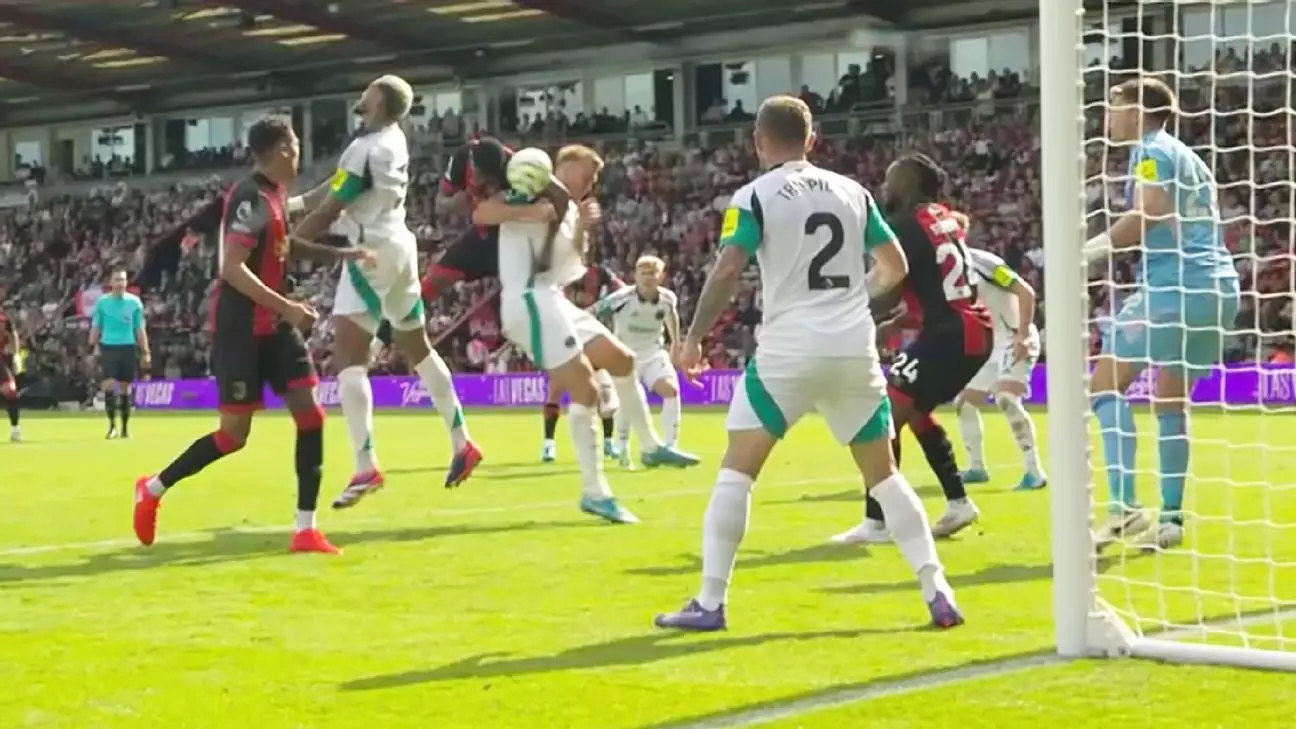The VAR decision to disallow AFC Bournemouth’s late winner against Newcastle United has once again brought up questions regarding the accuracy and fairness of Video Assistant Referee rulings. Despite the referee initially awarding the goal, the VAR intervened and ruled it out due to a potential handball by Dango Ouattara. The lack of definitive proof of the alleged handball raises concerns about when VAR should be used to overturn on-field decisions.
The Complexity of Handball Rules
The controversies surrounding the Bournemouth goal disallowance shed light on the complexity of handball rules in football. The evolution of handball definitions from encompassing the entire arm to focusing on the “t-shirt line” has only added confusion to an already subjective area of the game. The difficulty in determining the exact point at which handball offenses begin has made VAR decisions on such matters highly contentious and open to interpretation.
Another area of concern highlighted by recent VAR decisions is the handling of serious foul play and violent conduct incidents. In the case of Joelinton’s challenge on Bournemouth goalkeeper Neto, where the player was cautioned but not sent off, questions arise about the consistency and interpretation of such actions. The failure to apply red cards in situations that could result in serious injury reflects poorly on the VAR system.
The VAR rulings in the Manchester City vs. Ipswich Town match have once again raised suspicions of bias towards bigger clubs in decision-making. The incidents involving penalty claims for both teams highlighted a discrepancy in how such calls are assessed, with decisions seemingly favoring the larger club. The perception that top teams receive preferential treatment in VAR reviews is detrimental to the integrity of the game.
The differences in VAR decisions, such as the offside ruling in the Leicester City match and the disallowed goal for Manchester United, underscore the balance between subjectivity and objectivity in football officiating. While some decisions are clear-cut and based on factual evidence, others require interpretation and judgment calls by the referees. The challenge lies in ensuring consistency and fairness in all VAR reviews, regardless of the teams involved.
The controversies surrounding VAR decisions in the Premier League highlight the need for a thorough review of the system to address issues of accuracy, consistency, and fairness. As technology continues to play a significant role in modern football, it is imperative that VAR decisions uphold the integrity of the game and provide clarity to players, fans, and officials alike. Only through comprehensive reforms and continued evaluation can VAR improve its effectiveness and eliminate the controversies that currently surround its implementation.

Leave a Reply